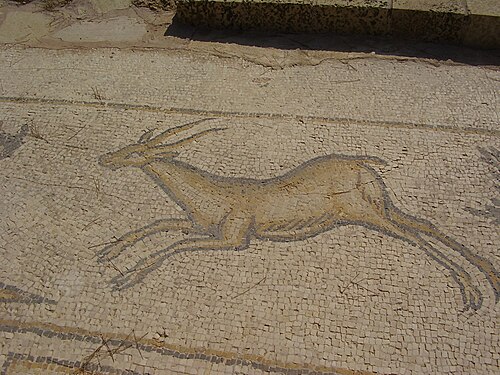Gazellenoun
An antelope of either of the genera Gazella (mostly native to Africa) or Procapra (native to Asia), capable of running at high speeds for long periods.
Gazellenoun
One of several small, swift, elegantly formed species of antelope, of the genus Gazella, esp. G. dorcas; - called also algazel, corinne, korin, and kevel. The gazelles are celebrated for the luster and soft expression of their eyes.
Gazellenoun
small swift graceful antelope of Africa and Asia having lustrous eyes
Gazellenoun
a small, slender antelope that typically has curved horns and a fawn-coloured coat with white underparts, found in open country in Africa and Asia.
Gazelle
A gazelle is any of many antelope species in the genus Gazella. This article also deals with the seven species included in two further genera, Eudorcas and Nanger, which were formerly considered subgenera of Gazella.
Antelopenoun
Any of several African mammals of the family Bovidae distinguished by hollow horns, which, unlike deer, they do not shed.
Antelopenoun
(US) The pronghorn, Antilocapra americana.
Antelopenoun
One of a group of ruminant quadrupeds, intermediate between the deer and the goat. The horns are usually annulated, or ringed. There are many species in Africa and Asia.
Antelopenoun
graceful Old World ruminant with long legs and horns directed upward and backward; includes gazelles; springboks; impalas; addax; gerenuks; blackbucks; dik-diks
Antelopenoun
a swift-running deerlike ruminant with smooth hair and upward-pointing horns, of a group native to Africa and Asia that includes the gazelles, impala, gnus, and elands.
Antelopenoun
another term for pronghorn
Antelope
The term antelope is used to refer to many species of even-toed ruminant that are indigenous to various regions in Africa and Eurasia. Antelope comprise a wastebasket taxon (miscellaneous group) within the family Bovidae, encompassing all Old World ruminants that are not bovines, sheep, goats, deer, or giraffes.







































